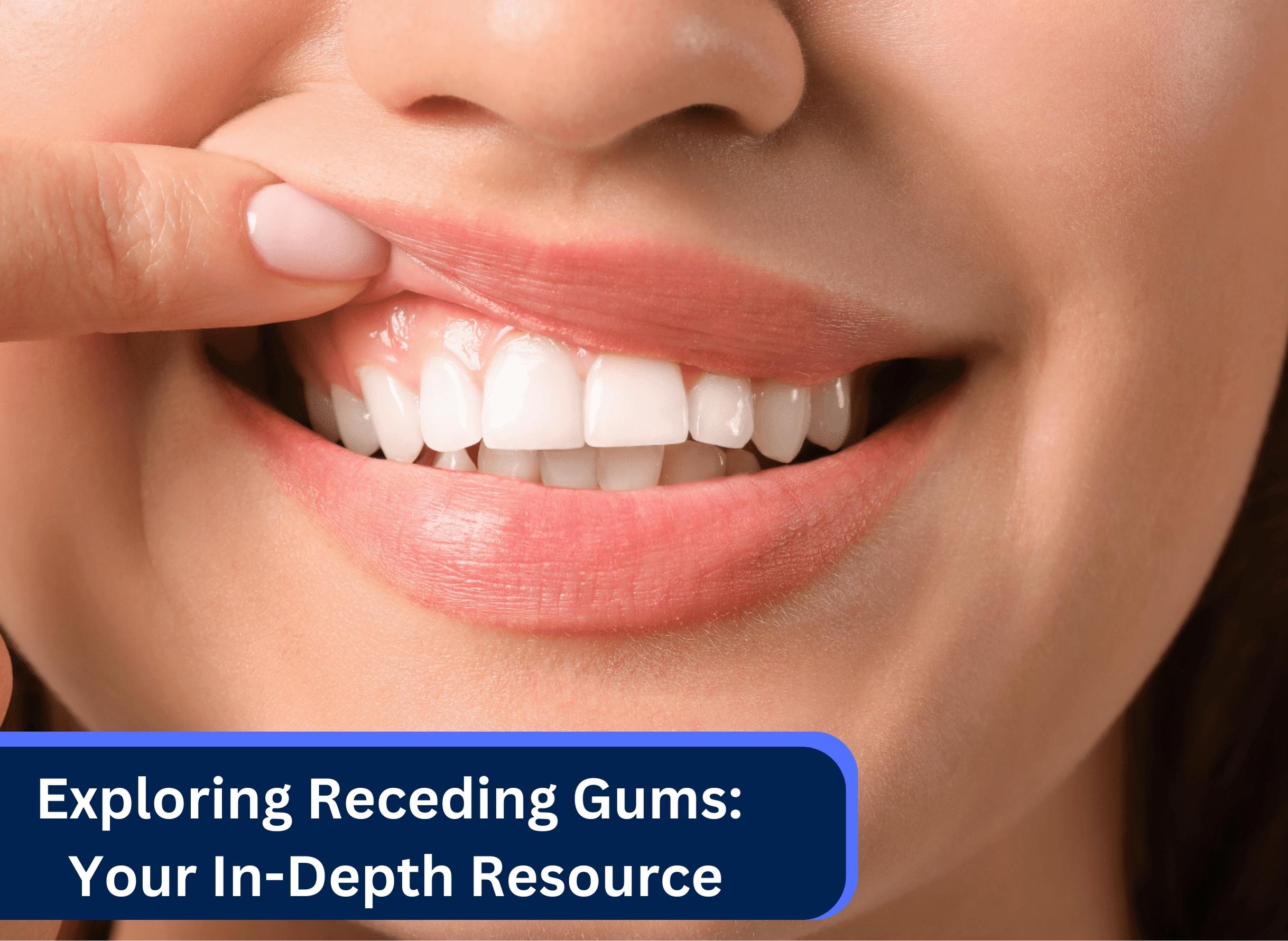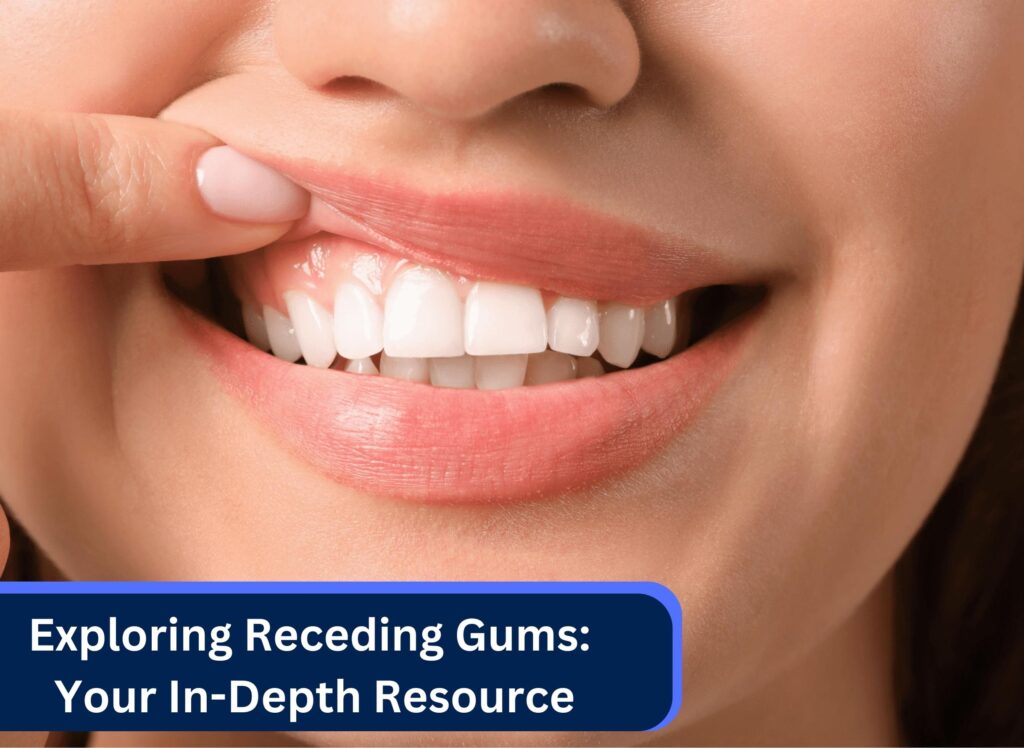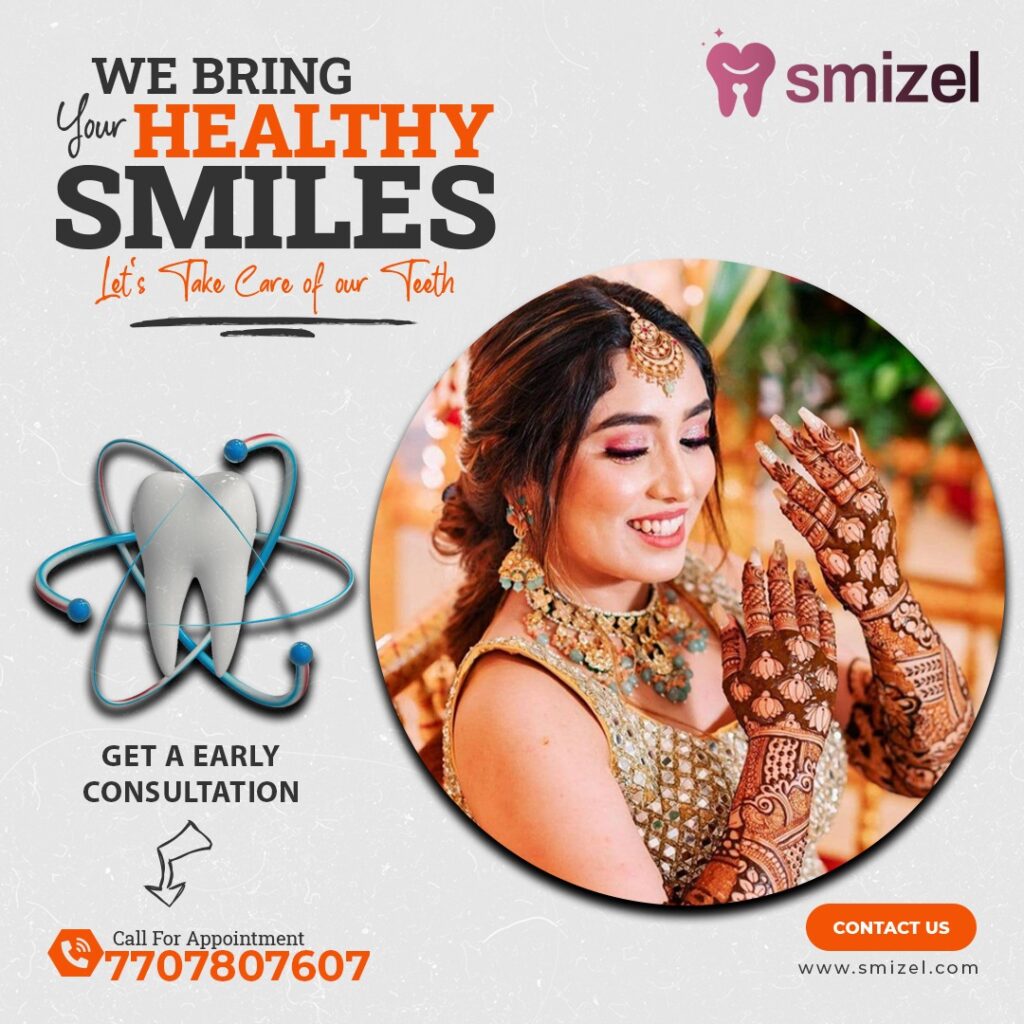
Exploring Receding Gums: Your In-Depth Resource

Maintaining oral health is paramount, and one aspect that deserves attention is the concern of receding gums. Known as gingival recession, this condition necessitates understanding and guidance for effective management. In this comprehensive guide, we delve into the intricate details of receding gums, providing insights and knowledge to empower you on your dental health journey. The information shared here aims to illuminate this condition and offer guidance, with a spotlight on expert care from Thind Dental Clinic in Ludhiana.
Understanding Receding Gums
Defining Gingival Recession
Receding gums transpire when the gum tissue surrounding teeth gradually pulls away, exposing the tooth’s root. This can result in discomfort, sensitivity, and aesthetic concerns. To combat this condition effectively, comprehending its causes, symptoms, and potential treatments is paramount.
Causes of Receding Gums
Multiple factors contribute to receding gums, including:
1. Poor Oral Hygiene: Insufficient brushing and flossing create a breeding ground for plaque accumulation. When plaque isn’t diligently removed from the gumline and tooth surfaces, it transforms into tartar, a hardened substance that harbors harmful bacteria. This bacterial buildup triggers gum inflammation and initiates the process of gum recession. The gradual detachment of the gum tissue from the teeth exposes the delicate root surfaces, leading to discomfort and sensitivity.
2. Gum Disease: Untreated gum disease, particularly gingivitis and periodontitis, is a major cause of receding gums. Gingivitis, characterized by gum inflammation and bleeding, can progress into periodontitis, where infection spreads to the supporting structures of the teeth. This infection triggers inflammation, causing the gums to pull away from the teeth. Over time, the recession becomes pronounced, leaving the roots exposed and vulnerable.
3. Aggressive: While maintaining oral hygiene is crucial, brushing too vigorously can lead to unintended consequences, including gum recession. Brushing with excessive force or using hard-bristle brushes can traumatize delicate gum tissue. This trauma weakens the attachment of the gums to the teeth, making them more susceptible to recession. A balanced approach to brushing, using a soft-bristle brush and gentle technique, is essential for safeguarding gum health.
4. Genetics: Genetics also play a role in the propensity for gum recession. Some individuals may inherit a predisposition to thin or weak gum tissues, making them more susceptible to gum recession even with proper oral hygiene practices. Recognizing genetic tendencies can prompt heightened vigilance and regular dental visits to monitor and address potential issues.
5. Smoking: Tobacco use, particularly smoking, wreaks havoc on oral health in multiple ways. Not only does smoking weaken the immune system’s response to infections, but it also restricts blood flow to the gums. Reduced blood circulation impairs the body’s ability to combat infection and inflammation, increasing the likelihood of gum disease. As gum disease progresses, the risk of receding gums amplifies, posing a dual threat to oral health.
Signs and Symptoms
Recognizing the Indicators
Early detection of receding gums is pivotal for swift intervention. Key signs include:
1. Visible Tooth Root: Exposed roots leading to teeth appearing longer signifies receding gums.
2. Sensitivity: Heightened tooth sensitivity, especially to hot or cold, may point to gum recession.
3. Gaps Between Teeth: Receding gums can lead to spaces between teeth.
4. Bleeding Gums: Easily bleeding gums during oral care could indicate underlying concerns.
5. Discomfort: Discomfort when eating or brushing due to exposed roots is indicative.
Prevention and Management
Preserving Gum Health
Preventing receding gums involves adopting prudent practices:
1. Proper Brushing and Flossing: Gently brush with a soft-bristle brush and floss daily.
2. Regular Dental Visits: Seek regular check-ups at Thind Dental Clinic in Ludhiana for professional care.
3. Tobacco Cessation: Quit smoking to enhance gum blood flow and reduce gum disease risk.
4. Habit Adjustments: Avoid aggressive brushing, using a toothbrush recommended by experts.
5. Nutritious Diet: Opt for a balanced diet rich in gum-supporting vitamins and minerals.
Treatment Options
Addressing Receding Gums
The treatment approach varies by severity:
1. Scaling and Root Planing: For milder cases of gum recession, scaling and root planing serve as an effective treatment option. This non-surgical procedure involves a comprehensive cleaning of the teeth and the removal of tartar and plaque buildup from above and below the gum line. Additionally, root planing smooths the tooth’s root surfaces, eliminating rough areas that might hinder gum reattachment.
2. Gum Grafting: This surgical procedure involves transplanting tissue from another area, such as the palate, to cover the exposed tooth roots. By providing additional gum tissue, the roots are shielded from external factors, and the appearance of the smile is improved. Gum grafting not only restores gum health but also enhances the overall aesthetics of the smile, contributing to increased self-confidence.
3. Surgical Interventions: Advanced cases of gum recession might necessitate surgical interventions. Surgical options include techniques that reposition the existing gum tissue to cover exposed roots or involve grafting procedures using donor tissue or synthetic materials. These procedures require the expertise of a skilled dental professional, making it crucial to consult a reputable dental clinic, such as Thind Dental Clinic in Ludhiana, for personalized recommendations.
Conclusion
Comprehending receding gums is pivotal for optimum oral health. Whether in Ludhiana or beyond, this condition’s impact on your smile and well-being is significant. Recognize causes, symptoms, and treatments to take proactive measures. For expert guidance tailored to your needs, consult Thind Dental Clinic in Ludhiana, ensuring your dental health investment reaps rewards. Remember, your oral well-being resonates with the overall quality of life; thus, its care stands as a judicious choice.
For additional information or to arrange an appointment
You can contact them at +91-92568-92568
or visit them at:
THIND DENTAL CLINIC
11-12-13-14 H.I.G Market, Opposite Water Tank, Ludhiana, Punjab 141010.









